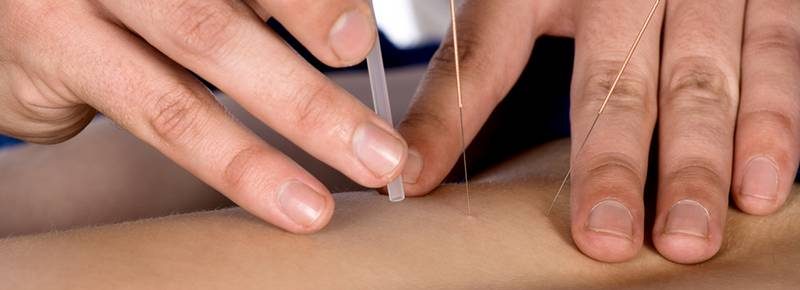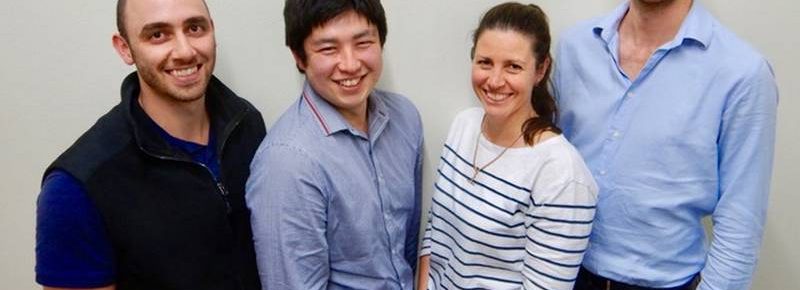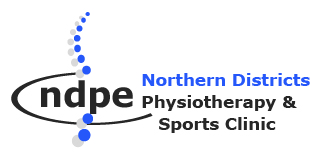Physiotherapy West Ryde
Physiotherapy, Sports Physiotherapy, Reformer Pilates, Orthotics & Dry Needling
Welcome to Northern Districts Physiotherapy & Sports Clinic
Physiotherapy is a treatment revolving around movement, assisting you to retain your physical function after an injury or illness. Physiotherapy— or physio, as it is frequently called— is a health field which is aimed at the assessment, maintenance, and restoration of the physical function and performance of the body.
Without our bodies performing at an optimal biomechanical level you will inevitably run into issues and develop imbalances or dysfunctions (not moving properly) that lead to pain and decreased performance. Whether you’ve sprained a muscle playing sport, experience headaches and migraines, or dealing with neck or back pain, physiotherapy can help get you back to feeling your best.
Welcome to Your Local Physio
NDPE offers quality physio care to local residents in West Ryde and surrounding areas, including Eastwood, Marsfield, Denistone, Epping, Ryde, Meadowbank, Melrose Park, Dundas Valley, Telopea, Putney, Carlingford, and Ermington.
Northern Districts Physiotherapy & Sports Clinic offer quality physiotherapy, sports physiotherapy & remedial massage to local residents in West Ryde & surrounding areas including; Eastwood, Marsfield, Denistone, Epping & Ryde.
How Physiotherapy Can Help You
At NDPE we use physiotherapy as an adjunct to other health care such as recovery from surgery, or in conjunction with medical advice or medication. However, it is usually used in isolation as the one therapy of choice such as in injury management. In the cases where it is used in combination with other medical/allied health therapies, it will help provide longer lasting relief or achieve a speedier recovery from injury.
Why Choose NDPE?
We customise our treatment to each individual client so that you get the most out of your treatment. We understand every body is different and even in the cases of two identical injuries, each person will heal differently. With your individual condition and its symptoms in mind, you can rest assured you’ll receive the best treatment for you at NDPE.
Our rehabilitation treatment recommendations are tailor made to suit each patient individually and we treat and respect our patients like members of our own family. We believe in analysing the root cause of the problem to establish an evidence-based treatment and rehabilitation program. Our team are also specialists in paediatric care, women’s health, pelvic floor physiotherapy and pregnancy care, and are all qualified, accredited and experienced healthcare professionals.
We also offer orthotics, clinical pilates, acupuncture, & dry needling treatment for the health and well being of all of our patients, helping them to reduce pain, prevent injuries (including sports injuries) and to get them on the road to recovery.
Our Physiotherapy Services
Physiotherapy uses a wide range of assessment and treatment techniques to determine the cause of the problem and where the painful structure that is causing the symptom lies. Your physiotherapist is then able to determine what the best technique to use to restore your functionality and help you feel your best.
Physio treatment will therefore vary depending on what the presenting physio condition is, but commonly patients can expect to receive treatment techniques from the following list:
- Joint mobilisation therapy
- Spinal mobilisation therapy
- Manipulation
- Sports physiotherapy
- Women’s health
- Pelvic floor physiotherapy
- Custom orthotics
- Pregnancy care
- Massage
- Postural advice/education
- Motor vehicle accidents
- Exercise programs/advice
- Prolotherapy
- Stretches and core stability training
- Ergonomic and work station assessments and advice
- Pilates conditioning programs
- Acupuncture and dry needling
- Muscle energy techniques
- Balance training and re-education
- Gait (running/walking) retraining
- Strength and rehabilitation program and training
Common Conditions Treated by Physiotherapists
Physiotherapists look at the factors which contribute to the problem or presenting complaint of the patient. By addressing poor posture, improper techniques, muscle imbalances, poor work practices, or other bad habits, your physiotherapist is able to address these issues and hence treat the patient as a whole. This approach reduces the likelihood of the same thing happening again in the future and also reduces any worsening of the condition or any more degeneration/dysfunction of the patient’s condition.
We are able to assess, diagnose and treat a wide variety of musculoskeletal and orthopaedic conditions such as:
- Scoliosis
- Achilles tendonitis
- Sciatica
- Plantar fasciitis
- Running injuries
- Back pain
- Neck pain
- Sports injuries
- Incontinence
- Mastitis
- Foot and ankle pain
- Knee pain
- Headaches
- Golfing injuries
- Swimming injuries
- Acute ankle sprains
- Sever’s Disease
- Acute knee injuries
- Osgood Schlatters Disease
- Sinding-Larssen-Johansson Syndrome
Your Physiotherapy Questions Answered
How much does physio cost in Sydney?
Physiotherapy typically costs an average of $90-$130 per session in Sydney. Each practitioner sets their own fees, and the cost can vary depending on factors such as the length of the appointment. Additionally, depending on your health fund you may be eligible for a rebate, meaning you won’t pay 100% of the out-of-pocket costs. This varies considerably between health funds and individuals, so check with your health fund before making a booking.
Can my GP refer me to a physio?
You can book an appointment directly with a physiotherapist, or have your GP refer you. If you have a chronic medical condition, you may be placed on a Chronic Disease Management Plan, where your GP’s referral will entitle you to 5 physiotherapy sessions per calendar year.
How many physio sessions do I need?
This depends on a large number of variables including your condition or injury, the extent of an injury, and how committed you are to your physiotherapy. Typically, minor injuries require 2-3 physio sessions, whereas soft tissue injuries and more complicated or serious conditions can take 6-8 weeks or longer.
What is the difference between physical therapist and physiotherapist?
While many people use these terms interchangeably, there is a difference between a physical therapist and a physiotherapist. In Australia, physiotherapists require more schooling and education than physical therapist. Physiotherapists also use different methods to treat pain, such as manual therapy and electrotherapy treatment techniques such as TENS, which a physical therapist doesn’t.
What can I expect at a physio appointment?
Your first physio appointment will begin with a discussion around your condition, needs, and expectations. Your physiotherapist will then conduct physical tests to check your flexibility, range of motion, reflexes, and anything else that may be relevant.
The treatment you receive will depend on your diagnosis. While manual therapy such as massage and joint mobilisation may work for some patients, others may benefit more from other treatments such as heat therapy, stretching, or therapeutic ultrasound, for example.
Why do I feel worse after physiotherapy?
Sometimes physiotherapy can be uncomfortable. Most of the time it isn’t, and it’s crucial you speak up if you do feel any pain during a session. However, like working out after a long period of rest, you may experience some soreness after your treatment. This is the ‘good pain’, that is a necessary part of the healing process. It’s important to remember that the long-term results will be worth any discomfort you may experience, and that the discomfort will fade with time.
How do I know if my physio is working?
Your physiotherapist will be able to notice improvements, and with their objective eye, often easier than you can yourself. Your physiotherapist will conduct tests and measures and compare them with your initial results to gauge how well your treatment is going.
How do I choose a physiotherapist?
There are a lot of factors you need to consider when choosing your physiotherapist. Choose one that suits the hours you have available to see them, which can often be one that works weekends or before or after work on weekdays. Ensure the physiotherapist you choose to see is licensed and registered, and that they’re somebody you feel comfortable with.
How often should you go to the physio?
Being upfront and honest about your expectations, and make sure your physio does the same. Discuss together how long you will likely see them for, keeping in mind that your visits will be more frequent in the beginning. Generally, chronic issues require at least 8 to 12 sessions over a 4 to 12 week period, but this will vary with each individual.
Book Your Physio Appointment
For anybody considering physiotherapy as a treatment for your condition, we hope this has explained the basics. If you are suffering from pain, then you can trust one of our experienced physiotherapists at NDPE. Whether you are dealing with a severe injury, high level rehabilitation following a severe injury or post-surgery, our team will devise a specific treatment plan tailored to your exact needs.
Payment
Payment is required at time of treatment, and we accept:
- Cash
- Cheque
- Credit card
- EFTPOS
- HICAPS Facilities (instant rebate from health fund)
No-one should endure ongoing pain and inconvenience. Life is too short. Contact us now to make an appointment with a professional west ryde physiotherapy centre, or call us on: 02 9874 8410.






















